VOL.51
April 2019


Special ____ Will AI Threaten Our Job Security?
Will AI Threaten
Our Job Security?
As AI technology continues to advance, people are reasonably concerned that human labor-intensive jobs will soon face a significant change. A clear indication is a significant decrease in the number of such workers, e.g., general office workers, cashiers at large retailers, ticket inspectors at tollgates. On the other hand, there is also a rosy view that the advance of AI technology will accelerate the rise of knowledge-based labor and thus give rise to new large-scale markets. As it stands now, what would be the best strategy for humanity to embrace the era of AI?
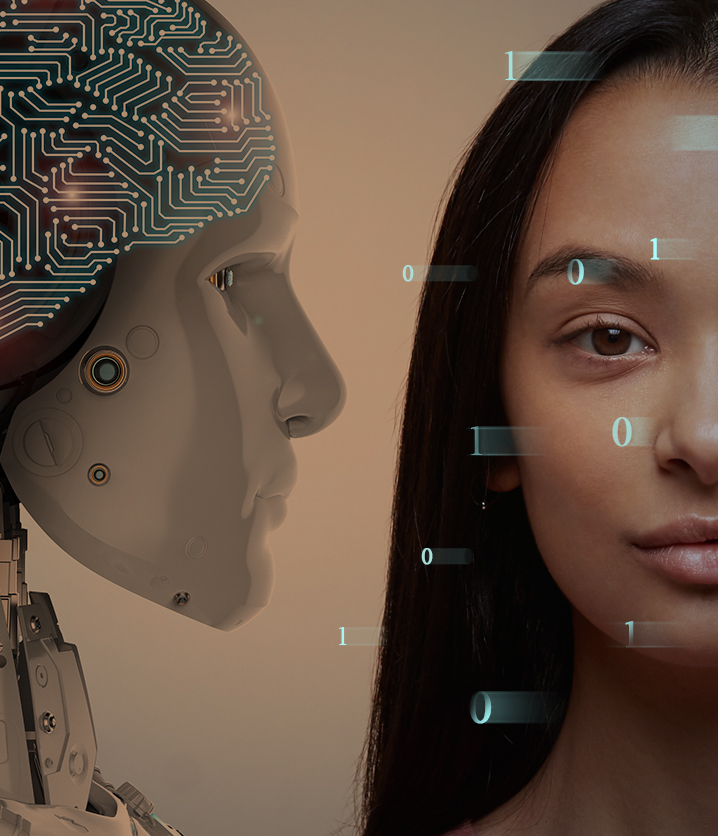
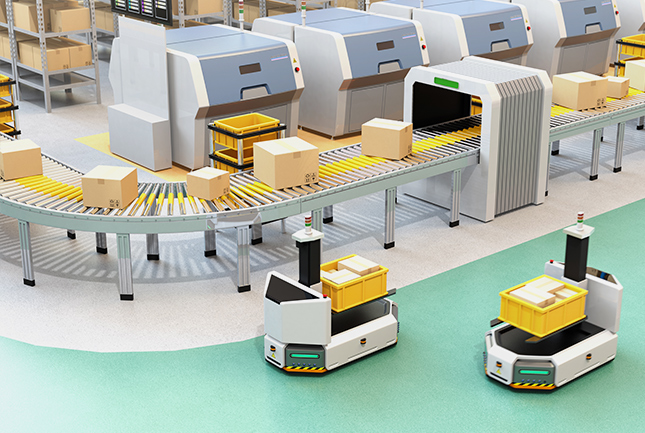
Automatic Guided Vehicles (AGV) that automatically move boxes on a conveyor belt at an industrial site
Unemployment; Unfolding of a New Paradigm
Significant attention is now being paid to the changes the advance of AI technology and its ripple effects on the industry will bring about to the labor market. At the center of this attention is job security. There have been changes in how we implement AI solutions, and innovative big data-based technologies have made tangible technological achievements. While this is happening, some of the jobs that have been carried out by humans are being lost little by little. For example, plant automation has been decreasing the number of existing jobs. Many people fear that their jobs will be taken over by AI.
In fact, we have already seen the rise of new technology bring about a paradigm shift to the job market. In the past industrial revolutions, many farmers and craftsmen had to suffer unemployment with their livelihoods threatened. Factory workers also lost their jobs to rapidly advancing automation technology, and the next victims were white-collar workers. This new paradigm shift is still underway, replacing human experts with robots and AI solutions based on computer technology. In the meantime, many agricultural workers have transitioned into the industrial sector, and these industrial workers have transitioned into the service sector.
According to the Future of Jobs report released right before the opening of the 2016 World Economic Forum, a total of 7.1 million jobs will disappear while 2.1 million jobs will be newly created by 2020 due to the Fourth Industrial Revolution. This forecast led to pessimistic prospects for the future in that it demonstrated that no one would be immune to the direct or indirect effects of the revolution regardless of the industry or job where they work. On the other hand, some people argue that this pessimistic perspective is derived from the underestimation of human ability to seek and achieve technological breakthroughs; i.e., they are missing the point that the Fourth Industrial Revolution will give rise to countless new jobs and further create new occupational clusters that do not exist today. Also, employment will possibly be promoted with the advance of AI technology.
World Economic Forum
An authoritative international private forum where world-renowned entrepreneurs, politicians, scholars, and journalists gather to discuss the global economy
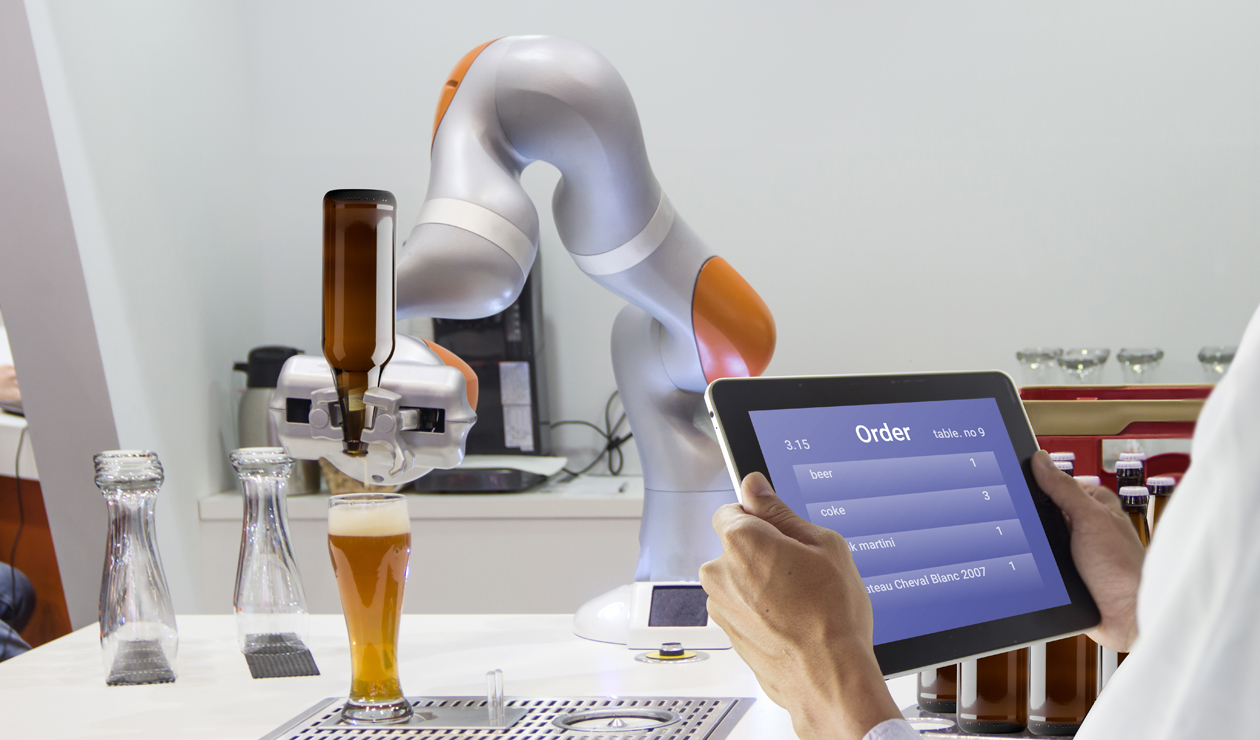
Image of an employee placing an order using a tablet connected to a robot bartender
AI, Altering the Future of Jobs
With the advent of the first mass unemployment, the number of agricultural farmers has decreased, but the number of jobs indirectly engaged in or based on agriculture has increased; for example, many people work in fertilizer or tractor manufacturing plants or as genetic engineers, bioengineers, or processed food workers. Likewise, accelerating occupational diversification has decreased the number of directly related jobs but increased that of indirectly related jobs.
Thomas Frey, a world-renowned futurologist, argues that 60% of the future jobs we will engage in do not even exist today. The Future of Jobs report also predicts that nearly 65% of children entering school in 2016 will end up working in jobs that do not even exist yet. These predictions are countered by more down to earth arguments, for example, saying that the technological advances that will be achieved within the next ten years will not substantively affect the labor market. The rationale behind these arguments is that we will remain in the era of weak AI, where AI solutions still need human aid to function.
Michael Glassman, a professor at Ohio State University, argues it is true that future AI solutions will serve more functions than they do today, but that the estimated number of jobs that will practically disappear has been exaggerated. Amidst such mixed opinions, the Fourth Unemployment concerned here seems to be a phenomenon that will not last indefinitely. In this regard, there is no point in being impatiently pessimistic about matters regarding the advance of AI technology coupled with unemployment problems. Jobs that will be lost to the Fourth Industrial Revolution will possibly be recreated in new occupational and industrial fields.
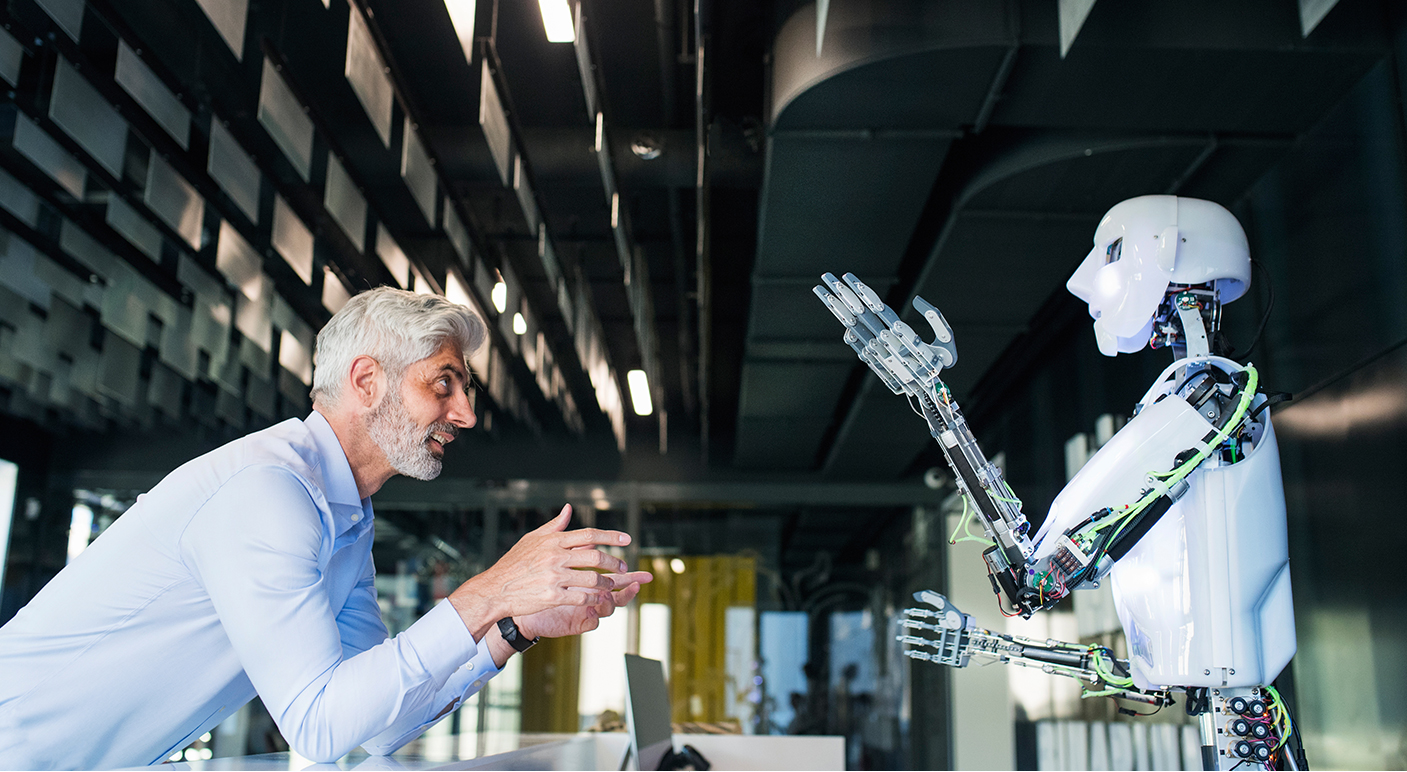
Industrial robots focusing on work efficiency and performance vs. intelligent robots with all their behavior focus on humans
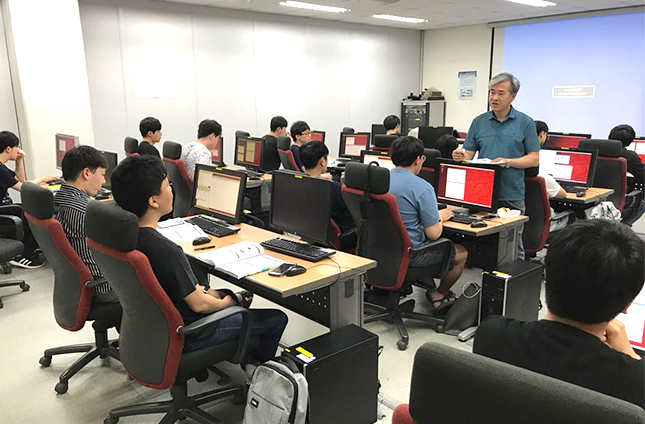
Young trainees participating in the intelligent semiconductor design engineer training program
What Should We Prepare and Be Prepared For?
The jobs that might be sought in the era of AI is in the interest of all mankind as a pending issue to be addressed. Also, an in-depth discussion is required as to how we should use AI solutions, which are merely manmade tools. Furthermore, restructuring of the labor market will be necessary, reflecting various issues related to job creation, such as retraining for existing workers, work-hour reduction, and changes in the employment structure.
As it stands now, a great deal of attention and interest has been directed toward a government-funded research institute’s initiative that aims to train the unemployed youth into intelligent semiconductor design engineers and help them advance their career in the industry. The training program, hosted by ETRI’s Seoul SW-SoC Convergence R&BD Center, currently provides intensive training sessions aimed at fostering specialized engineers equipped with working-level expertise, e.g., in intelligent semiconductors and AI solutions. The program is also proactively helping them find positions at technology startups, SMEs, or medium-sized firms.
Since its launch in 2009, during nine years the training program has fostered a total of 564 engineers specialized in SW-System on Chip (SoC) design. Fifty-seven out of its 62 trainees, or 92 %, have ended up in companies or furthered their education. Indeed, the researchers in charge of this program have addressed multiple problems and concerns in parallel, preparing the young trainees for the advent of the Fourth Industrial Revolution while helping them make their way in today’s tight job market and find solutions to job issues, some of the largest concerns among young people.
Also, the Hanium ICT Mentoring program, hosted by the Ministry of Science and ICT and supervised by the Institute for Information and Communications Technology Promotion, is a talent fostering program where each team of mentors (ICT experts) and mentees (college students) implements assigned projects. The program aims to improve the hands-on competence of participating students and further address pending issues faced by the ICT industry, such as job seekers and job openings.
For years, conventional wisdom has been that, when you do what others do, you will be selected if you can do it just a bit better than them. This, however, will no longer be the case in the era of advanced AI. Jaeseung Jeong, a professor at KAIST, said in the JTBC show Inconvenience Lab Interview, “The era of AI will be a society where people consistently think about who they are and the value of their existence instead of comparing themselves with others.” It might sound rather paradoxical, but it is expected that, in a society where AI is universally adopted, humanities will play a much more significant role, e.g., the philosophical appreciation of human existence. Now is the time where insights into the future and creativity are needed more urgently than ever.



